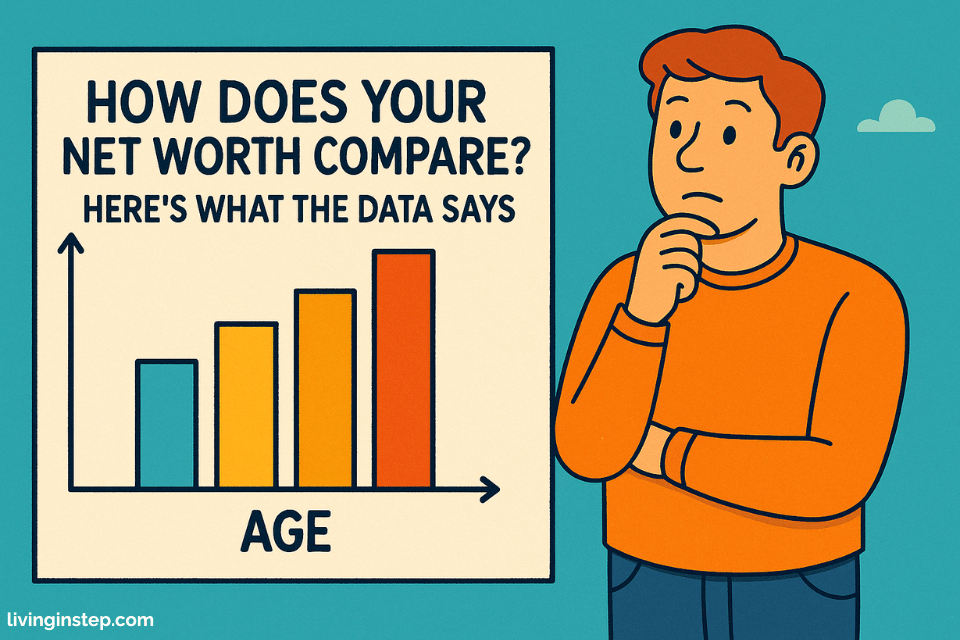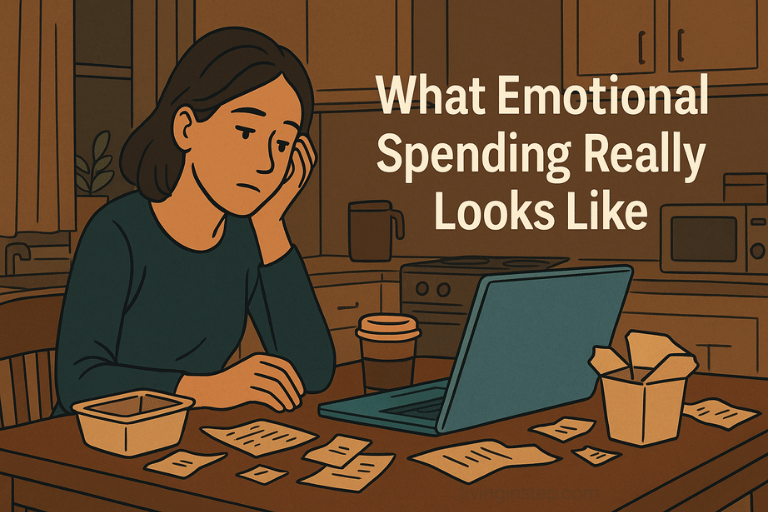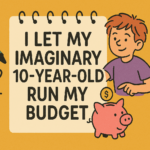Here’s What the Data Says…
You’ve probably seen the charts
Net worth by age
Net worth by income
Net worth by zip code
And maybe you’ve glanced at them and thought
“I should be further ahead by now”
You’re not the only one
Most people don’t see those numbers as information
They see them as judgment
But here’s what the data actually shows—
And why the story behind it matters more than the numbers themselves
First—what is net worth, really?
It’s not just savings
It’s everything you own
Minus everything you owe
So that includes:
- Home equity
- Retirement accounts
- Cars, property, investments
- Minus mortgage, credit cards, loans, debts
It’s a snapshot
Not a full picture
But it’s how wealth is usually measured
Here’s a quick look at the current numbers
Here’s the median net worth by age in the U.S., according to the Federal Reserve’s most recent data:
- Under 35: $13,900
- Age 35–44: $91,300
- Age 45–54: $168,600
- Age 55–64: $212,500
- 65–74: $266,400
- 75+: $254,800
(Remember—median means the middle. Not the average. Half are below, half are above.)
So if you’re 40 and you’ve got a net worth around $90K
You’re not behind
You’re in the middle
Even if it doesn’t feel like it
But here’s what the data doesn’t show…
It doesn’t show how much help someone had
How early they started
Or what kind of risks they had the option to take
It doesn’t show how many financial hits they took along the way
Or whether they live in a place where rent eats up 50% of their income
And it definitely doesn’t show how much pressure they’ve been carrying
Trying to keep up with a version of “success” that never quite fits
So how should you use this info?
Not to compare
But to give yourself a reset
To know where you are
Without making it personal
Because net worth is not a character test
It’s a snapshot of a moment in your financial story
And most stories are messy
Wobbly
And full of course corrections
So if the numbers don’t look how you hoped
That’s not a failure
It’s just a starting point
And if they look better than expected
That’s not a finish line
It’s just where you are right now
Note: This content is for entertainment purposes only and is not financial advice. Please consult a qualified financial advisor for guidance specific to your situation.








